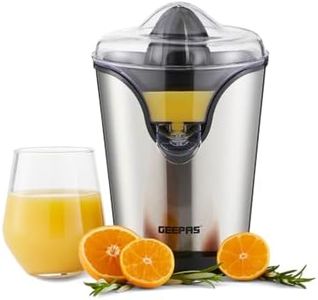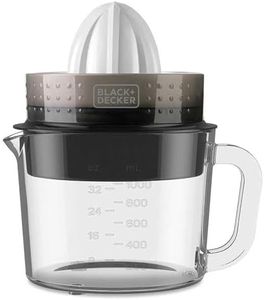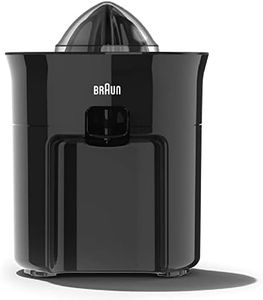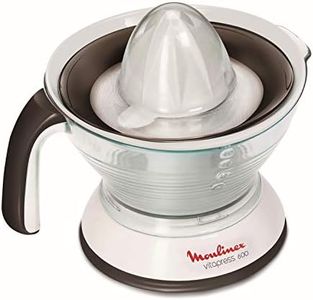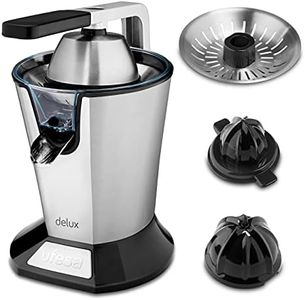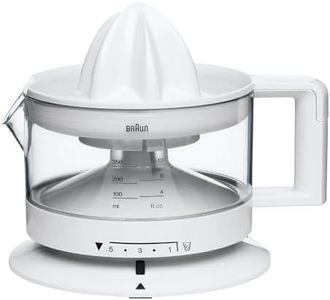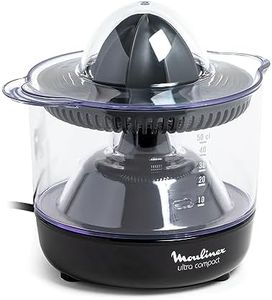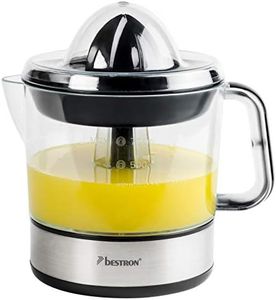We Use CookiesWe use cookies to enhance the security, performance,
functionality and for analytical and promotional activities. By continuing to browse this site you
are agreeing to our privacy policy
10 Best Electric Citrus Juicers
From leading brands and best sellers available on the web.By clicking on a link to a third party's website, log data is shared with that third party.
Buying Guide for the Best Electric Citrus Juicers
Picking the right electric citrus juicer can make your morning routine easier and help you enjoy freshly squeezed juice at home, whether it’s for daily health habits or occasional refreshment. To find a juicer that suits you best, it’s important to understand the key features and specifications that make each juicer different. Think about your needs, like how much juice you want to make and how often you plan to use the machine, and let these needs guide your choices as you go through the main features.Motor PowerMotor power, usually expressed in watts, tells you how strong the juicer is at spinning and pressing citrus fruits. A higher wattage means the machine can handle tougher or larger fruits and do the job quicker, but it might be louder. Lower wattage options tend to be quieter and work fine for softer, smaller fruits or infrequent use. If you plan to juice in small amounts or aren’t in a rush, a lower-powered model will be enough. For frequent juicing or if you don’t want to spend much time pressing, a stronger motor is useful.
Juicing Cone SizesThe juicing cone is the part that presses into your fruit. Some juicers come with interchangeable cones or cones that fit various fruit sizes, from limes to grapefruits. If you like variety and want the flexibility to juice different citrus fruits, look for adjustable or multiple cone options. If you mostly juice lemons or oranges, a single, correctly sized cone should suffice.
Pulp ControlMany electric juicers allow you to control how much pulp goes into your juice, either with adjustable strainers or by changing filters. If you prefer your juice smooth or like more pulp, check for models with pulp control features. If you don’t care much, or always strain your juice after, this may not be as important.
Juice Container and SpoutSome juicers have a built-in jug that collects juice, while others let the juice pour directly into your glass through a spout. If you want to juice several servings at once, a large container is handy. If you usually make one glass at a time, a direct spout makes things simple and less cleanup is needed. Consider what’s most convenient for your routine.
Ease of CleaningElectric citrus juicers can have several parts that touch the fruit and juice, so being able to easily take them apart and wash them is important. Look for designs where the removable parts are dishwasher safe or easy to rinse by hand. If you want to juice often but don’t like cleaning, prioritize ease of cleaning when choosing your juicer.
Noise LevelJuicers can make varying amounts of noise while working. If you’ll be juicing in the morning or in a quiet household, you might appreciate a quieter model. Higher-powered machines often make more noise, so balance your need for speed and comfort.
Build Quality and MaterialsJuicers come in plastic and metal builds. Metal bodies are generally sturdier and last longer, but can be heavier. Plastic models are lighter and may cost less but could wear out faster. If durability or aesthetics matter to you, pay extra attention to the materials.
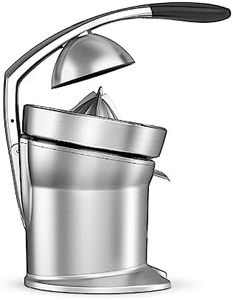
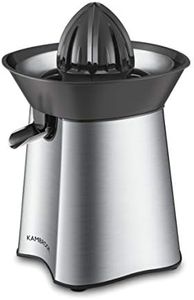
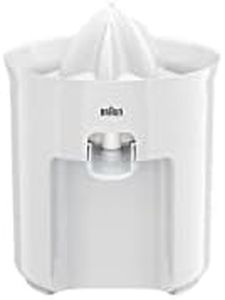
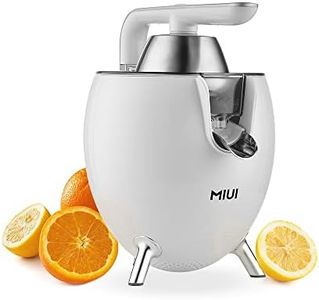
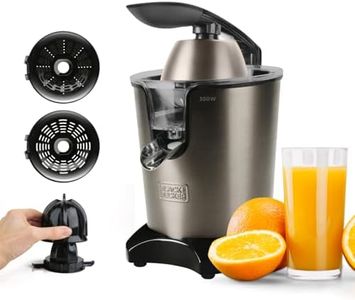
![Russell Hobbs Orange Squeezer & Citrus Juicer Electric [Left & Right Rotating, 2 Press Cones for Lemons/Oranges] Red (Drip Stop Function, Dishwasher Safe, BPA-Free) Juicer 26010-56](https://images-proxy.bestreviews.guide/ZDSeBrA6G3FXTuzBa1L_DKcIgUM=/0x300/https://m.media-amazon.com/images/I/413WiLqeyQL._AC_CX679_.jpg)
